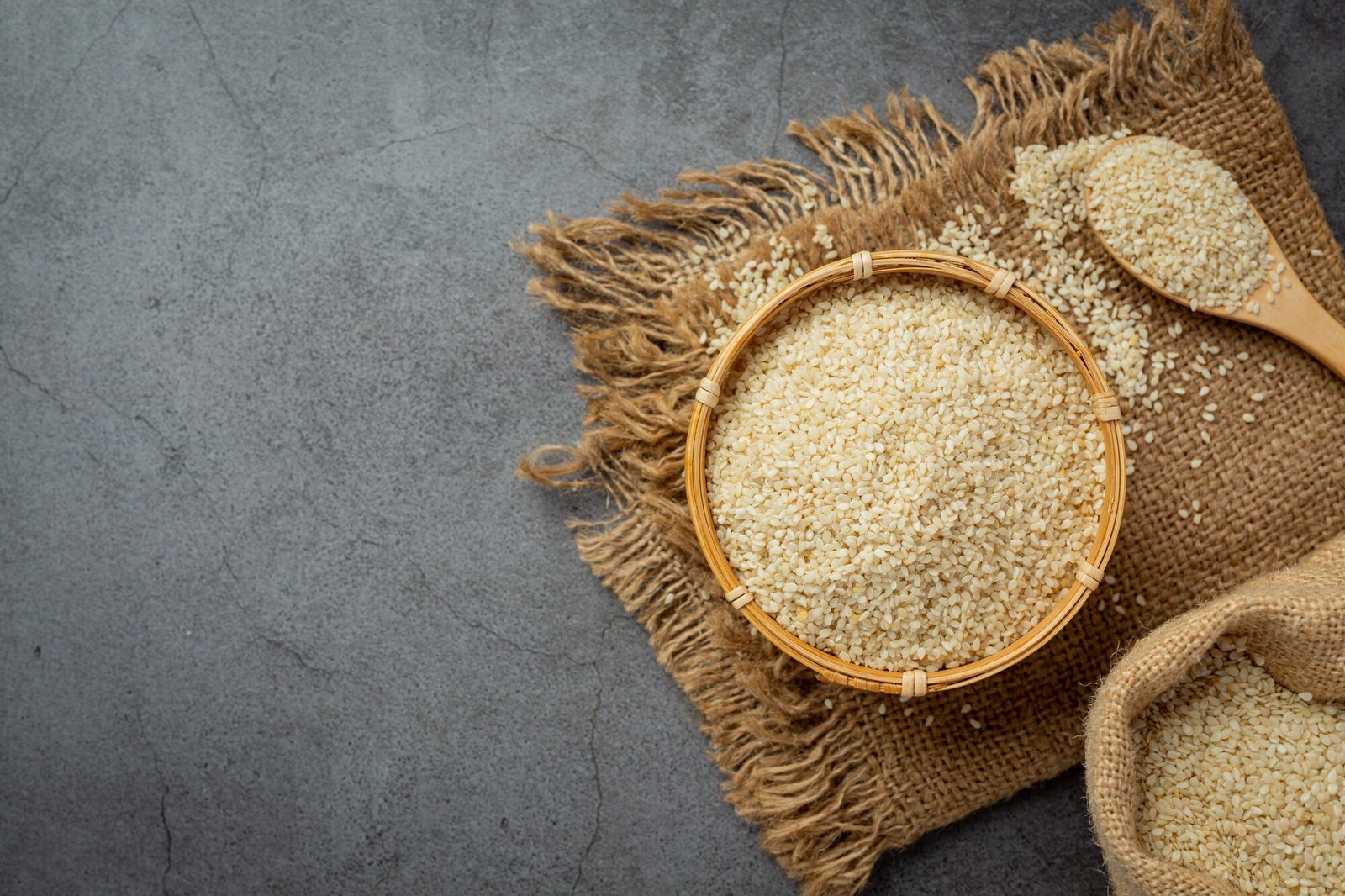In the panorama of superfoods, sesame seeds often go under the radar. But these tiny, crunchy seeds are powerhouses of nutrition, packed with an array of essential nutrients. What’s more, they have held a pivotal role in traditional medicine across different cultures for thousands of years. This blog will take you on a journey to unravel the mysteries of sesame seeds and their significance in ancient healing methods.
The spotlight on sesame seeds in the contemporary health and wellness narrative isn’t misplaced. In fact, these seeds are tiny treasure chests of health and vitality, boasting an impressive nutrient profile including vitamins, minerals, dietary fiber, and healthy fats. But the prowess of sesame seeds extends beyond their nutritional composition. It is their remarkable role in traditional medicine that truly sets them apart.
History of Sesame Seeds in Traditional Medicine
Long before they found their way into modern kitchens, sesame seeds were used extensively in traditional healing practices. These little seeds, originating from Africa and India, were an integral part of ancient Egyptian, Greek, and Chinese medicinal systems.
Traditionally, sesame seeds were used to treat a myriad of health problems, ranging from skin disorders and hair health to boosting digestion and promoting heart health. They were hailed for their anti-inflammatory and antioxidant properties, making them a popular remedy for conditions like arthritis. Ancient healers often ground them into a paste or oil, using this versatile ingredient to concoct medicinal remedies.
Types of Sesame Seeds and Their Benefits
Sesame seeds come in different varieties, the most common being white and black. Each variant has its unique composition and medicinal uses. Black sesame seeds are renowned in traditional Chinese medicine, often prescribed to enhance kidney and liver function and promote hair growth.
White sesame seeds, on the other hand, have been utilized for their high calcium content, contributing to bone health. They also contain sesamin and sesamolin, two unique substances that have been linked to lowering cholesterol and preventing high blood pressure in traditional medicine.
Understanding Hulled Vs Unhulled Sesame Seeds
When it comes to sesame seeds, one crucial aspect to understand is the difference between hulled and unhulled seeds. The hull is the outermost layer or shell of the seed. In hulled seeds, this layer is removed, while unhulled seeds retain it.
Unhulled sesame seeds offer a more substantial nutrient content due to the retained hull. They are richer in calcium and come with a slightly more bitter flavor. Conversely, hulled seeds, having lost their outer layer, present a sweeter flavor and are easier to digest. In traditional medicine, the choice between hulled and unhulled would often depend on the specific health needs of an individual.
Sesame Seeds and Modern Health
In today’s fast-paced world, sesame seeds have not lost their relevance. Modern scientific research supports many of the health benefits traditionally attributed to sesame seeds. They have been linked to improving heart health, supporting healthy skin and hair, aiding digestion, and even exhibiting potential anti-cancer properties.
Further, sesame seeds are excellent for managing cholesterol levels, thanks to their high content of monounsaturated and polyunsaturated fats. They also contain a generous amount of dietary fiber, making them beneficial for gut health – a cornerstone of overall wellbeing.
Incorporating Sesame Seeds into Your Diet
Now that we have demystified the benefits of sesame seeds, the question arises – how do you add them to your diet? Sesame seeds are incredibly versatile and can easily be sprinkled onto salads, blended into smoothies, or used as a garnish for your favorite dishes.
For a more traditional approach, consider sesame oil. Extracted from the seeds, this oil has been used medicinally for ages. Not just that, sesame seed paste, also known as tahini, can be a wonderful addition to your culinary repertoire. Be it a dressing for your salad or an ingredient in your hummus, tahini is an excellent way to reap the benefits of sesame seeds.
Conclusion
Sesame seeds have been part of human history for centuries, used extensively in traditional medicine due to their dense nutrient composition and healing properties. Today, these seeds remain as relevant as ever, providing an easy and delicious way to boost our health and wellbeing. As we continue to explore the immense world of nutrition and health, let’s not forget these tiny seeds, their incredible benefits, and the vast legacy of traditional wisdom they carry.

